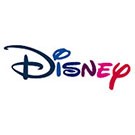Small Caps, MicroCap, Banks, Biotech Jump As CPI & Rates Drop On Thursday – $GME $IWC $KRE $LTRN $MODD $QS $XBI Rise!

Happy Thursday!
I hope all shined brightly for you today.
As for the stock market today, the S&P 500 and the Nasdaq cooled off significantly after their recent ascent, lower the small caps jumped forward, while the yield curve pulled back with the 2-yr note yield closed down 12bps at 4.51% & the 10-yr note yield closing at 4.19%. Leading theses moves, the macroeconomic schedule produced the June CPI report that confirmed a .1% drop M/M & rose only 3% Y/Y beating expectations & in plain English, confirmed that inflation is getting under control as consumer price increases waned further in June. This will give Fed Jerome Powell even more ammunition to move towards lowering interest rates by year end and provide further strength to the markets, while providing fuel for small caps and riskier assets to move higher, as they did today. The macroeconomic schedule also produced the Weekly Initial Claims report that came in lower than expected at 222k , while the Weekly Continuing Claims edged down to 1.852M. Stay tuned though as tomorrow, Friday will bring another key report, the PPI report.
The US Dollar Index closed at $104.46, edging lower by .56%, while the CBOE Volatility Index (^VIX) closed at $12.95, +.54% and hit a high of $13.29 during intraday trading. Oil prices moved higher by .90% closing at $82.84/bbl.
At the end of today’s session the Dow 30 closed at 39,753.75 (+.08%) as shares of JPMorgan Chase (JPM) closed at $207.45, -.17% who will report their quarterly results tomorrow.
The S&P 500 closed at 5,584.54 (-.88%) failing to break another record high for the 38th time this year. Heavily weighted Tesla (TSLA) closed $241.03, -8.44% as Bloomberg reported that it was pushing off its robotaxi plans to October.
The Nasdaq closed at 18,283.41 (-1.95%). The market leading mega cap Magnificent Seven closed as follows: Alphabet (GOOG) closed at $187.30, -2.78%, Apple (AAPL) closing at $227.57, -2.32%, Meta Platforms (META) closing at $512.70, -4.11%, Microsoft (MSFT) closing at $454.70, -2.48%, NVIDIA (NVDA) closing at $127.40, -5.57%, & Tesla’s (TSLA) shares moved higher to close at $241.03, -8.44%. Cathie Wood’s ARK Innovation ETF (ARKK) closed at $45.71, -.52%.
The small caps on the Russell 2000 closed at 2,125.04 (+3.57%), while the iShares Micro-Cap ETF (IWC) rose 4.90% and is now actually positive territory up 3.46% in 2024.
Biotech stocks on the SPDR S&P Biotech ETF (XBI) closed at $97.96, +2.60%. The 52-wk range is $63.80-$103.52.The iShares Biotechnology ETF (IBB) closed at $143.85, +2.36%. The 52-range is $111.83 – $141.16. The iShares U.S. Healthcare ETF (IYH) closed at $62.05, +.75%.
The SPDR S&P Regional Banking ETF (KRE) closed at $51.97, +4.21% and the SPDR S&P Bank ETF (KBE) closed at $48.86, +3.63%.
Around the crypto and precious metals’ universe, Bitcoin (BTC) traded to $57,363.53, -.28%. Gold prices closed at $2,419.00, +$42/oz & Silver prices closed at $31.48, +$.60/oz.
The memes stocks closed as follows: AMC Entertainment (AMC) closed at $5.22, +.19% & GameStop (GME) closed at $25.57, +2.40%.
VP WATCHLIST UPDATES – NOW LET’S LEARN MORE!
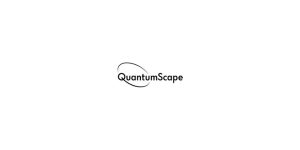
Volkswagen Group’s battery company PowerCo and QuantumScape (NYSE: QS, $7.06, +30.50%) today announced they have entered into a groundbreaking agreement to industrialize QuantumScape’s next-generation solid-state lithium-metal battery technology. Upon satisfactory technical progress and certain royalty payments, QuantumScape will grant PowerCo the license to mass produce battery cells based on QuantumScape’s technology platform.
Under the non-exclusive license, PowerCo can manufacture up to 40 gigawatt-hours (GWh) per year using QuantumScape’s technology with the option to expand up to 80 GWh annually, enough to outfit approximately one million vehicles per year. The companies believe this high-touch engagement represents the fastest way to achieve gigawatt-hour-scale production of solid-state technology to meet the growing global demand for better electric vehicle batteries. The agreement supersedes an earlier joint venture between the Volkswagen Group and QuantumScape to co-manufacture batteries.
The agreement creates a highly collaborative partnership that amplifies the companies’ core competencies – QuantumScape’s cutting-edge technology and PowerCo’s global capabilities in industrialization and manufacturing facilities. It will feature a combined workforce initiative to accelerate the industrialization of QuantumScape’s technology. A large, dedicated scale-up team, composed of experts from both companies, will execute on the industrialization activities.

Eupraxia Pharmaceuticals (EPRX, $2.62, -3.32%) is a clinical-stage biotechnology company focused on the development of locally delivered, extended-release products that have the potential to address therapeutic areas with high unmet medical need. The Company strives to provide improved patient benefit and has developed technology designed to deliver targeted, long-lasting activity with fewer side effects. DiffuSphere™, a proprietary, polymer-based micro-sphere technology, is designed to facilitate targeted drug delivery, with extended duration of effect, and offers multiple, highly tuneable pharmacokinetic (PK) profiles. This investigational technology can be engineered for use with multiple active pharmaceutical ingredients and delivery methods.
Eupraxia announced that the Company’s Chief Operating and Scientific Officer, Dr. Amanda Malone, will be presenting at the upcoming Controlled Release Society 2024 Annual Meeting and Expo being held in Bologna, Italy from July 8-12, 2024. Presentation Details: Abstract ID:4085079, Presentation Title: EP-104, a novel microparticle formulation achieving extended-release of fluticasone propionate, Session Title: Long-Acting Drug Delivery Formulations – Session #2, & Session Date & Time: July 10, 2024, from 9:00 AM to 11:00 AM CEST (3:00 AM to 5AM ET). The presentation will also be available on Eupraxia’s website at:
https://eupraxiapharma.com/our-science/clinical-trials-and-publications/default.aspx.
Note that Eupraxia recently completed a Phase 2b clinical trial (SPRINGBOARD) of EP-104IAR for the treatment of pain due to osteoarthritis of the knee. The trial met its primary endpoint and three of the four secondary endpoints. Eupraxia has expanded the EP-104 platform into gastrointestinal disease with the Phase 1b/2a RESOLVE trial for treating EoE. Eupraxia is also developing a pipeline of later- and earlier-stage long-acting formulations. Potential pipeline indications include candidates for other inflammatory joint indications and oncology, each designed to improve on the activity and tolerability of currently approved drugs.
On May 23, Eupraxia announced that regulators in Australia and Canada have cleared the Company’s request to expand its Phase 1b/2a RESOLVE trial, which is evaluating the safety and efficacy of EP-104GI as a treatment for eosinophilic esophagitis (“EoE”). For further details about Eupraxia, please visit the Company’s website at: www.eupraxiapharma.com.
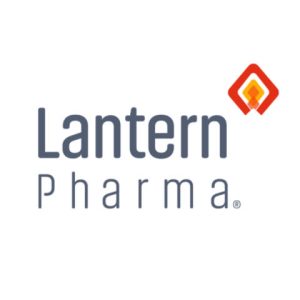
Shares of Lantern (LTRN), an artificial intelligence (“AI”) company developing targeted and transformative cancer therapies using its proprietary RADR® AI and machine learning (“ML”) platform with multiple clinical stage drug program, closed at $4.20, +1.69% and is up +.24% at $4.21 in the aftermarket.
On July 10, Lantern announced a significant advancement towards the development of a diagnostic for its drug candidate LP-184. The diagnostic is currently based on qRT-PCR (quantitative real-time polymerase chain reaction) technology and is focused on quantifying the amount of PTGR1 RNA in patient tumor samples to assess the potential for sensitivity to Lantern’s drug candidate LP-184. The company plans to further develop and validate the assay for its use as a potential tool for patient selection in later stage clinical trials across a broad range of solid tumors that have shown sensitivity to LP-184. Panna Sharma, CEO of Lantern Pharma stated, “This milestone represents a significant leap forward in our precision oncology approach and in ensuring that we enrich our future LP-184 clinical trials with the patients we believe will be most likely to benefit. By working to develop a companion diagnostic for LP-184, we’re not just advancing a drug candidate; we’re paving the way for more personalized and effective cancer treatments for patients that have the highest likelihood of benefitting from the therapy. The planned use of biomarkers like PTGR1 in our clinical trials exemplifies our commitment to data-driven, patient-centric drug development.”
Panna Sharma, CEO of Lantern, was interviewed recently on the ‘Today In Nashville’, a program hosted by Carole Sullivan and associated with Nashville’s WSMV 4, an NBC affiliate. Watch it here to learn more.
On June 12, Lantern announced that the Japan Patent Office (JPO) has issued a Certificate of Patent for patent application no. 2021-513267 / registration no. 7489966 directed to Lantern Pharma’s drug candidate LP-284 ((+)N-hydroxy-N-(methylacylfulvene)urea). The Certificate of Patent entitled “Illudin Analogs, Uses Thereof, and Methods for Synthesizing the Same” covers molecule LP-284, including claims covering the new molecular entity. A Certificate of Patent is issued after JPO examinations have confirmed the merits of a patent request. Lantern values the broad protection this latest patent provides. Lantern estimates that LP-284 can have the potential to improve outcomes for 40,000 to 80,000 patients with blood cancers annually, with a global annual market potential of $4 Billion USD.
- Active clinical trials across three AI-guided drug candidates with initial data and clinical readouts for LP-184 on-track for the second half of 2024.
- Obtained regulatory allowance to begin Phase 2 Harmonic™ clinical trial enrollment in Japan and Taiwan where approximately 30-35+% of all lung cancer cases occur in never-smokers with NSCLC; Harmonic™ continues patient enrollment in the US.
- Phase 1 clinical trials for both synthetic lethal drug-candidates, LP-184 and LP-284, continue to advance with no dose-limiting toxicities observed in any of the patient cohorts enrolled and dosed to date.
- The combined annual global sales market potential for LP-184 and LP-284 across multiple cancer indications is estimated to be over $12 billion USD.
- Starlight Therapeutics, a wholly owned subsidiary of Lantern Pharma focused on CNS and brain cancers with STAR-001, advanced with the filing of a clinical trial protocol for the Phase 1B dose optimization and expansion cohort in recurrent IDH wild-type high grade gliomas.
- Advanced AI-powered module for streamlining and guiding differentiated ADC development, which will be instrumental in the next-generation of drug candidates for Lantern Pharma and its collaborators.
- Established an AI driven collaboration with Oregon Therapeutics where the RADR® platform will be leveraged to sharpen, expand and derisk future clinical development strategies for a novel, first-in-class inhibitor of cancer metabolism.
- Approximately $38.4 million in cash, cash equivalents, and marketable securities as of March 31, 2024.
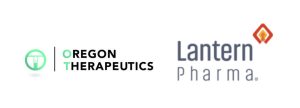
On May 6, Lantern announced a strategic AI-driven collaboration with French biotechnology company, Oregon Therapeutics to optimize the development of its first-in-class protein disulfide isomerase (PDI)(1) inhibitor drug candidate XCE853 in novel and targeted cancer indications. Lantern will be leveraging its proprietary RADR® AI platform to uncover biomarkers and efficacy-associated signatures of XCE853 across solid tumors that can aid in precision development. Collaborative efforts are expected to identify biomarker signatures that can be used to stratify tumors most responsive to XCE853 and guide potential future clinical development and patient selection. Oregon Therapeutics is developing XCE853 in various cancer indications, including drug-resistant ovarian and pancreatic cancer, certain hematological cancers and several pediatric cancers including CNS cancers. Lantern highlighted the following:
- XCE853 is Oregon Therapeutic’s first-in-class, and potentially best-in-class PDI inhibitor, exhibiting potent preclinical efficacy across multiple solid and hematological cancers, and is ready to advance to Investigational New Drug (IND)-enabling development.
- The AI-enabled collaboration aims to refine and expand the positioning of XCE853, a novel protein disulfide isomerase (PDI) inhibitor, in new and targeted oncology indications, including for drug-resistant tumors.
- The collaboration is leveraging RADR®’s AI-based capabilities, including 200+ machine learning (ML) algorithms and foundational models for oncology drug development to uncover biomarkers and molecular correlates of efficacy and define potential combination regimens to sharpen XCE853’s drug development strategy.
- Lantern Pharma is receiving equal IP co-ownership and drug development rights in newly discovered biomarkers, novel indications, and use for new pharmacological strategies for XCE853.
On April 22, Lantern announced that – the company has received regulatory approval to expand its Harmonic™ trial, a Phase 2 clinical study evaluating LP-300 in non-small cell lung cancer (NSCLC) in never-smokers in both Japan and Taiwan. Approximately one third of all lung cancer patients in East Asia are never-smokers and the proportion of lung cancer in never smokers (LCINS) has been increasing gradually over time, according to a publication in Translational Lung Cancer Research (1). The approval to proceed with the Phase 2 clinical trials in Japan and Taiwan are expected to accelerate the collection of patient and response data needed for the next-stage of evaluation and development of LP-300, a therapeutic for the treatment of relapsed and inoperable primary adenocarcinoma of the lung given in combination with chemotherapy Additionally, it may also bring a needed therapeutic option for LCINS diagnosed patients in Japan and Taiwan, where one-third of all lung cancer diagnoses are made among those who have never smoked. Finally, Lantern believes that this improves the positioning for drug-candidate LP-300 to develop collaborative and co-development partnerships with global biopharma companies with a primary focus in serving the Asian markets. LCINS are histologically, mutationally, and epidemiologically distinct from smoking-related lung cancers and occur almost exclusively as adenocarcinomas and most commonly in women and individuals of Asian ancestry.(2) LCINS are highly enriched for alterations in the tyrosine kinase (TK) genes, have low tumor mutation burden (TMB) and low rates of PD-L1 expression.(2) Many of these factors may provide clarity on why LP-300 seems to have a distinct mechanism of action and anti-cancer activity in tumors among LCINS patients. Lantern believes that this unique mechanism of action and historically observed anti-tumor activity may ultimately prove to be a useful option for this growing class of patients globally.
On March 5, Lantern announced a series of important milestones related to the development, size, and advancement of RADR® — its proprietary AI platform focused on transforming the cost, pace, and timeline of oncology drug development. Lantern highlighted the following:
- The rapid growth of Lantern Pharma’s AI platform could lead to accelerated development of better treatments, greater precision in clinical development, and improved combination regimens with the potential for longer and more durable patient responses.
- Lantern’s RADR® platform recently surpassed 60 billion data points and is planned to exceed 100 billion data points during 2024 and has been crucial in the expansion of the indications for drug candidate LP-184 and in the accelerated development of LP-284.
- Lantern seeks to focus additional data growth efforts of the RADR® platform on: drug sensitivity data, combination treatment outcome data, and biomarker data in rare cancers, and on emerging synthetic lethal targets that are aimed at accelerating the development of new therapies for Lantern and its partners.
- Lantern will also enhance the RADR® platform’s generative AI capabilities, focusing on molecular optimization and automated feature extraction to improve understanding and prediction of molecular dynamics, safety, and drug-drug interactions.

Shares of Indaptus Therapeutics, Inc. (Nasdaq: INDP) closed at $2.22, +.91%, and up .90% at $2.24 in the aftermarket. Indaptus is a company with the ability to harness both the body’s innate and adaptive immune responses, believes that they are uniquely positioned to revolutionize the treatment of cancer and certain infectious diseases. Indaptus Therapeutics has evolved from more than a century of immunotherapy advances. The Company’s novel approach is based on the hypothesis that efficient activation of both innate and adaptive immune cells and pathways and associated anti-tumor and anti-viral immune responses will require a multi-targeted package of immune system-activating signals that can be administered safely intravenously (i.v.). Indaptus’ patented technology is composed of single strains of attenuated and killed, non-pathogenic, Gram-negative bacteria producing a multiple Toll-like receptor (TLR), Nucleotide oligomerization domain (Nod)-like receptor (NLR) and Stimulator of interferon genes (STING) agonist Decoy platform. The products are designed to have reduced i.v. toxicity, but largely uncompromised ability to prime or activate many of the cells and pathways of innate and adaptive immunity. Decoy products represent an antigen-agnostic technology that have produced single-agent activity against metastatic pancreatic and orthotopic colorectal carcinomas, single agent eradication of established antigen-expressing breast carcinoma, as well as combination-mediated eradication of established hepatocellular carcinomas and non-Hodgkin’s lymphomas in standard pre-clinical models, including syngeneic mouse tumors and human tumor xenografts.
On June 4, Indaptus announced that its Chief Medical Officer, Roger Waltzman, M.D., will present an update on the Company’s lead product candidate, Decoy20, at the 7th Annual Next-Gen Immuno-Oncology Conference in Boston on June 20-21, 2024. Dr. Waltzman will present preliminary results from the Company’s ongoing Phase 1 study of Decoy20, an intravenous treatment using killed bacteria designed to broadly stimulate the immune system, in patients with advanced solid tumors.
On June 3, Indaptus announced updated data from its ongoing Phase 1 clinical trial of Decoy20 in patients with solid tumors. The data were featured in a poster presentation at the American Society of Clinical Oncology (ASCO) Annual Meeting on June 1 in Chicago, Illinois.
Dr. Roger Waltzman, Chief Medical Officer of Indaptus, commented, “Our latest findings presented at ASCO demonstrate that the administration of Decoy20 in study participants at both higher and lower doses significantly induces dozens of cytokines and chemokines, many of which have been associated with innate and/or adaptive immune responses. Additionally, the adverse events associated with Decoy20 are generally lower-grade and transient, which is an improvement compared with traditional approaches using TLR and STING agonists. Given the limited effective treatments available for patients with relapsed advanced solid tumors, the promising results of Decoy20 offer hope for improving the immune response against cancer and potentially expanding treatment options.”
The poster presentation at ASCO included pharmacokinetic and safety data for patients in two single-dose cohorts. Eleven patients have been treated with Decoy20: four in Cohort 1 and seven in Cohort 2. Key findings from the ongoing study include:
-
Manageable Adverse Events: All side effects related to the treatment were manageable and as expected.
-
Rapid Clearance: In all patients, Decoy20 was mostly cleared from the blood within 120 minutes after the dose.
-
Consistent Immune Response: Both lower dose and higher dose groups showed transient changes in blood immune cells, with a quick increase in an important type of white blood cell called neutrophils, and a decrease in other white blood cells, indicating that Decoy20 temporarily and effectively moves these cells around the body.
-
Immune Activation: Blood tests (plasma biomarker analysis) showed that Decoy20 briefly activates a wide range of immune responses in both dose groups.
-
Support for “Pulse-Prime” Hypothesis: The results continue to support the Company’s strategy of using Decoy20 to trigger the immune system in a short and broadly targeted way.
Jeffrey Meckler, Indaptus CEO commented, “We are excited by this latest single dose data in our ongoing Phase 1 trial. It gives us confidence that as we dose more patients in the multi-dosing part of the study, we will continue to see immune responses that are consistent with potential anti-tumor activity. We look forward to providing more updates this year.”
On May 22, Indaptus announced the successful advancement of its Phase 1 trial for Decoy20, an investigational novel package of broad immune agonists for cancer immunotherapy that has first-in-class potential across a diverse range of cancers including liver, pancreatic, colorectal and non-small cell lung. Following review by a Safety Review Committee (SRC) of the company’s initial clinical data, which will be presented at the annual meeting of the American Society of Clinical Oncology (ASCO), the Company has successfully dosed the first patient in the multi-dose portion of the trial with Decoy20. The primary goal of this stage of the trial is to determine the safety of Decoy20 when administered multiple times to the same patient, and to begin to examine efficacy across multiple types of cancer. Decoy20 is composed of attenuated and killed, intact, non-pathogenic Gram-negative bacteria which are designed to act as a “decoy,” tricking the body into activating a broad antitumor response from both its innate and adaptive immune systems. In preclinical studies, the treatment has been shown to activate specialized immune receptors called TLRs, that facilitate a potent defense against tumors, without inducing excessive toxicity. The product candidate is designed to induce a strong and broad pulse of immune activation, followed by rapid clearance from the body.“Current immunotherapies usually target a few immune system pathways and have low cure rates in advanced cancers. Indaptus is investigating an incredibly exciting and differentiated approach to fighting cancerous tumors that deviates from a focus on targeted therapies in the field. The advancement of this trial is a significant milestone that builds on strong evidence that Decoy20 successfully and broadly activates potent tumor-fighting cytokines and chemokines in both the innate and adaptive immune systems, and was administered systemically without intolerable adverse events,” stated Roger Waltzman, MD, Chief Medical Officer of Indaptus.
On May 8, Indaptus announced financial results for the first quarter ended March 31, 2024, and provided a corporate update. Company to present poster at American Society of Clinical Oncology (ASCO) Annual Meeting on June 1, 2024 highlighting initial results from its Phase 1 clinical trial of Decoy20.

Jeffrey Meckler, CEO, Indaptus Therapuetics, Inc. (NASDAQ: INDP)
Jeffrey Meckler, Chief Executive Officer of Indaptus, commented, “We continue to make steady progress in our clinical development plans and are receiving regular validation for results reported to date, both through a presentation in April at the American Association for Cancer Research (AACR) annual meeting, and the acceptance of further data to be presented in a poster at the American Society of Clinical Oncology (ASCO) annual meeting, which is considered among the top annual oncology conferences. We are encouraged by the results we have reported, along with the early results we are seeing as we advance our trial, and believe they are indicative of the potential for Decoy20, and indeed our platform as a whole. We look forward to reporting more about our progress as it develops.”
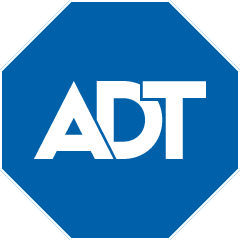
On June 17, ADT announced the appointment of Dan Houston and Danielle Tiedt to the Company’s Board of Directors as additional independent directors. In conjunction with their appointments, Houston and Tiedt will both join the Board’s Nominating and Corporate Governance Committee, while Houston will also join the Board’s Compensation Committee. Houston is chairman, president and chief executive officer of Principal Financial Group, a global financial services company with $709 billion of assets under management. He joined Principal in 1984 and has served as chief executive officer since 2015. Houston serves on several boards of non-profit organizations, including the American Council of Life Insurers, Iowa State University Business School Dean’s Advisory Council and Partnership for a Healthier America. As chief marketing officer for Google’s YouTube, Tiedt oversees global marketing strategy, product marketing and brand vision. During her tenure, YouTube has grown to a $40 billion business operating in 76 countries. Prior to joining Google in 2012, Tiedt held various leadership roles in technology product management and marketing at Microsoft. She serves on the board of the 4-H Foundation, America’s largest youth development organization.
On April 25, ADT report their Q1 earnings results highlighting the following:
- Total revenue of $1.2 billion with end-of-period recurring monthly revenue (RMR) up 3% to $353 million ($4.2 billion on an annualized basis)
- Consumer and Small Business (CSB) revenue of $1.2 billion, up 5% and segment Adjusted EBITDA of $638 million, up 8%
- Strong customer retention with gross revenue attrition of 13.1%
- GAAP income from continuing operations of $92 million, or $0.10 per diluted share, up $218 millionAdjusted income from continuing operations of $151 million, or $0.16 per diluted share, up $56 million

On Jan. 19, Modular Medical announced the premarket submission of its MODD1 next-generation insulin pump to the FDA for 510(k) clearance. “This is an exciting milestone for the Company, as we seek to change the diabetes market. Almost 30 years after the introduction of the first insulin pump, more than three quarters of those who could benefit from wearing a pump do not wear one. It is our belief that our simplified design will encourage many “almost-pumpers” to adopt technology to aid in their diabetes management, without the complexity and expense required by many of the current solutions,” said Paul DiPerna, Chairman and CTO of Modular Medical.
Jeb Besser, CEO of Modular Medical, stated “Getting a person who requires daily insulin to adopt a pump instead of multiple daily injections can reduce healthcare costs and improve long-term patient outcomes. Pump adoption has been impeded by the ‘three-Cs:’ they are too complex, cumbersome and costly. The MODD1 was designed to be simple and affordable with an attractive form factor. We believe our two-part patch pump design, easy to learn interface and scalable manufacturing will all contribute to a differentiated and lower cost marketing approach. On behalf of the board of directors, I would like to thank the entire Modular Medical team, and all of our stakeholders and shareholders for their support in reaching this point. We expect to receive initial questions from the FDA during the quarter ending June 30, 2023, and we will provide updates, as appropriate. While working with the FDA to gain US clearance, our regulatory effort will now turn to preparing applications to obtain the UKCA mark to enable us to market the MODD1 in the United Kingdom. Operationally, we will move our pilot production line to our manufacturing partner to prepare for commercial launch.”
On Dec. 21, Modular Medical announced a collaboration agreement with Glooko, Inc., a global leader specializing in connected care and remote patient monitoring for diabetes. Integrating with Glooko will allow clinicians and patients to easily review insulin dosing data from the MODD1 pump, when commercially available. In addition, through Glooko’s platform, Dexcom CGMS users will be able to view their glucose levels in the same accessible format in conjunction with their pump data. Glooko’s platform has a broad installed base, which has been deployed in over 30 countries and 8,000 clinical locations. Jeb Besser, CEO of Modular Medical stated, “We are extremely pleased to add the Glooko technology platform to our diabetes care system making it even easier and more cost effective for us to provide this important capability to our clinical and patient base. Glooko’s mission to improve health outcomes of people with chronic conditions through its personalized, intelligent, connected care platform fits perfectly with our vision of providing an easy to use, affordable delivery technology to give more patients access to better care.”
Economic Reports
On Monday, the Consumer credit report showed a higher expected rise by $11.3B in May.
On Tuesday, the NFIB Small Business Optimism Survey report came in higher at 91.5 in June.
On Wednesday, the Weekly MBA Mortgage Applications Index report confirmed a.2% drop. The Wholesale inventories report also showed a .2% rise in May & the Weekly EIA Crude Oil Inventories report confirmed a 3.44M barrel draw.
On Thursday, the CPI report confirmed a .1% drop M/M & rose 3% Y/Y beating expectations in plain English inflation is getting further in control as consumer price increases chilled further in June. The Weekly Initial Claims report came in lower than expected at 222k, while the Weekly Continuing Claims edged down to 1.852M.
Videos
Post View Count : 501







